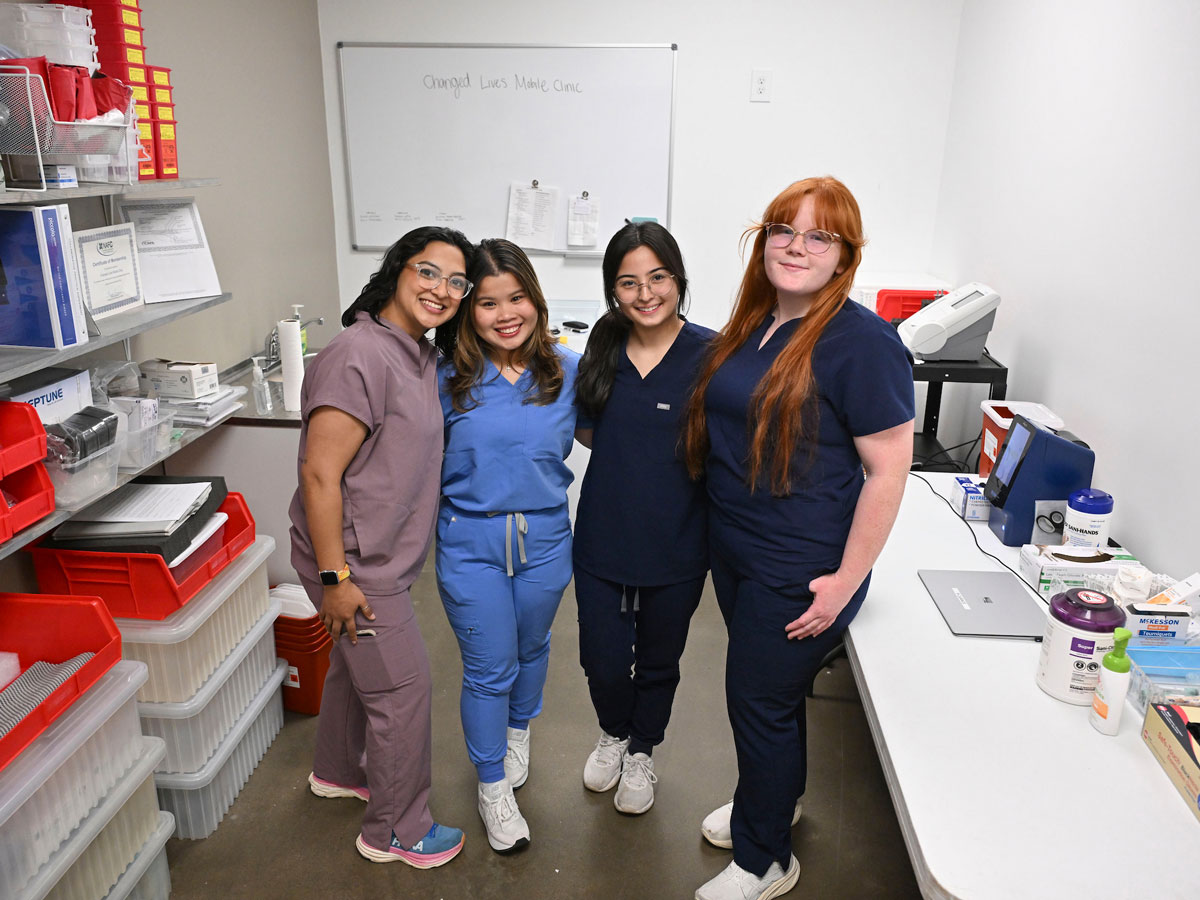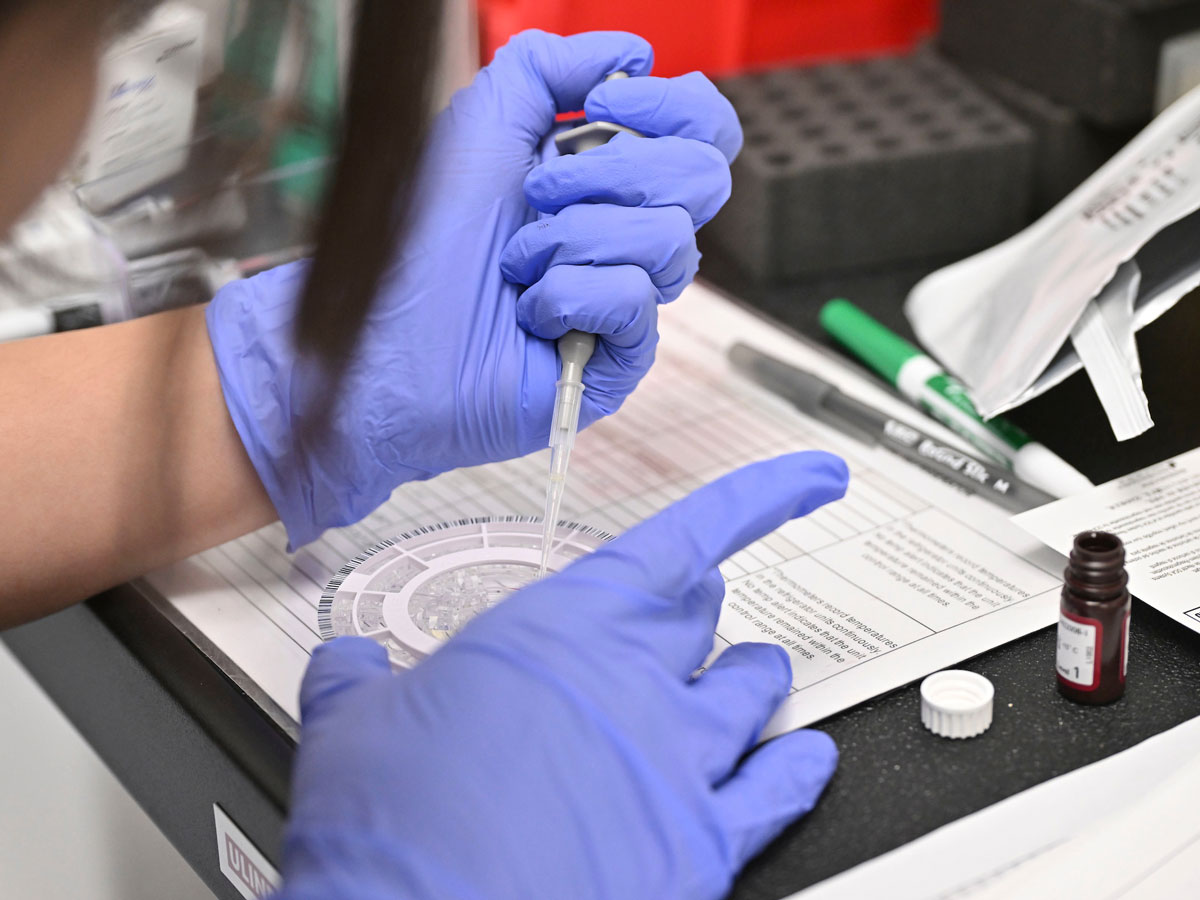
By Sarah Morgan Johnson
Alumni and faculty from the University of Alabama at Birmingham School of Nursing are playing a key role in operating and expanding the work of The Foundry Ministries Changed Lives Mobile Clinic, which provides health care services for clients of The Foundry, a faith-based drug and alcohol rehabilitation program in the Birmingham area.
The Foundry recently renovated their laboratory facilities at the Changed Lives Mobile Clinic to provide more space for testing and clinical operations. Alumna Julie Mauldin, BSN, RN (BSN 2023), is the Charge Nurse at the Changed Lives Mobile Clinic where she oversees volunteer staff and the organization of laboratory services. Mauldin also is a student in the School’s Master of Science in Nursing Program in the Adult-Gerontology Acute Care Nurse Practitioner Specialty Track and a 2024-2025 Albert Schweitzer Fellow. She first stepped foot in the clinic as a BSN student and recently worked to organize the laboratory workflow as part of her fellowship.
The School and The Foundry have maintained a strong, mutually beneficial partnership since 2013 and at the Changed Lives Mobile Clinic since 2018. Assistant Professor Deborah Bowers, DNP, CRNP, FNP-C (BSN 1985, MSN 2013, DNP 2017), and Assistant Professor Emily Patton, DNP, CRNP, FNP-C (MSN 2013, DNP 2020), currently have faculty practices at the Changed Lives Mobile Clinic, where the School’s Bachelor of Science in Nursing students, Family Nurse Practitioner students, Doctor of Nursing Practice students and Albert Schweitzer Fellows have all had the opportunity to work together and provide different forms of care for patients as they fulfill their research and clinical requirements.
“Since beginning my involvement with the clinic four years ago, I have worked to enhance the efficiency and effectiveness of our operations. I developed a comprehensive laboratory manual detailing quality control protocols, procedural guidelines and equipment storage requirements to ensure consistency and accuracy in testing,” Mauldin said. “Additionally, I collaborate with Dr. Bowers, Dr. Patton and staff at our partner clinic locations to strategically schedule laboratory specimen collection, optimizing patient care and resource utilization.”

Before the renovation, the laboratory at the Changed Lives Mobile Clinic was overcrowded. As Bowers and Patton were able to purchase new equipment with grant funding, space became tighter and tighter. Eventually, they approached The Foundry to discuss building a separate space for laboratory testing at the clinic.
Bowers noted that having separate spaces for testing and storing equipment has streamlined operations at the clinic and allowed for more efficient, even lifesaving, testing.
“This expansion has allowed us to keep all the lab equipment set up in a private room and ready to use at any point. Before the expansion we had to move it all out of a closet and set it up with rolling screens for privacy. Recently, we added new program participants at The Foundry's Changed Lives Christian Center, and many of them needed lab testing. We were able to offer testing earlier than usual, and one of the new residents ended up having a critical issue. If we had not been able to offer testing when we did, there could have been a very different outcome. Because the laboratory workflow was streamlined and ready to go, we were able to intervene much sooner and avoid hospitalization,” Bowers said.
Mauldin’s work at the Changed Lives Mobile Clinic is centered around improving access to care for patients with decreased social determinants of health. She has seen firsthand how the renovated laboratory and streamlined protocols have changed patient lives.
“By integrating on-site clinical testing, we eliminate common barriers to care, such as transportation challenges, financial constraints and long wait times for diagnostic services. With the ability to perform immediate laboratory testing, we expedite the diagnosis and treatment process, allowing for timely medical interventions that improve patient outcomes. By providing these services directly within the community, we empower patients with the knowledge and resources necessary to manage their health more effectively,” Mauldin said.